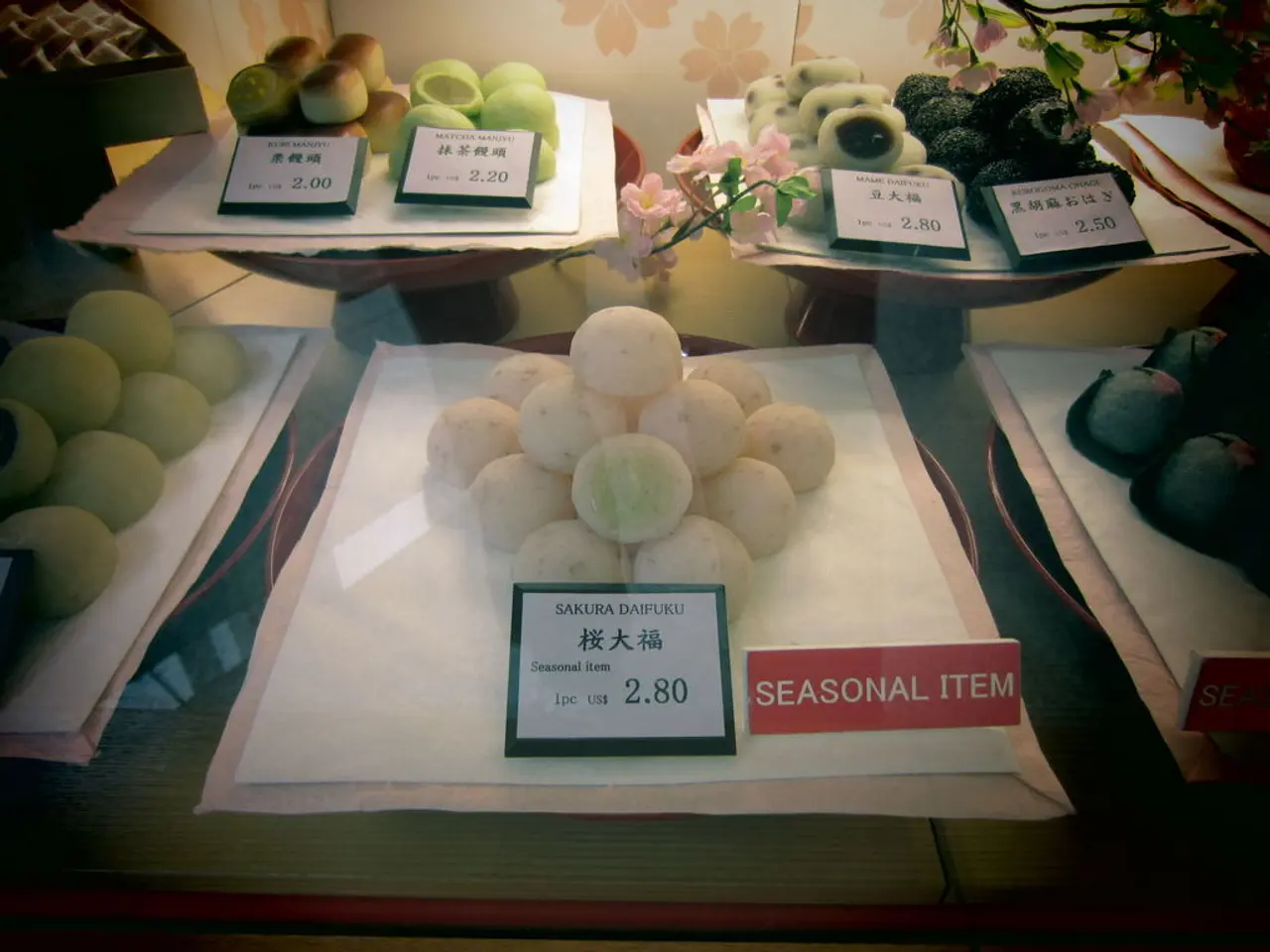Expanded Maple Water Market Valuation Expected at USD 3210.9 Million by 2034, Boasting a 19.8% Annual Growth Rate
The Maple Water Market is experiencing a significant surge, with a projected size of around USD 2.25 billion in 2024, expected to reach USD 3.9 billion by 2025 and an astonishing projection of about USD 555.52 billion by 2034[1]. This dramatic expansion indicates a rapidly growing consumer demand, likely driven by trends towards natural, health-focused beverages.
Product Offerings and Packaging
Typical product offerings include pure maple water and flavored maple water variants. The packaging trends favor convenient, eco-friendly options such as cartons, bottles, and recyclable containers, aligning with the growing demand for sustainability [1].
Distribution Channels
Distribution primarily occurs through supermarkets, convenience stores, health food stores, and increasingly e-commerce platforms to reach a broader consumer base seeking wellness-oriented beverages. The growth of online retail channels caters to both niche and broad wellness consumers interested in natural hydration products [1].
Regional Analysis
North America leads the market given its historical association with maple products and consumer preference for natural beverages [1]. While the potential for market expansion exists globally, explicit regional breakdowns beyond North America are limited in the current data. Climate change considerations in regions like New York are affecting maple syrup production cycles, which could impact the maple water supply [5].
Recent Developments and Trends
The industry is innovating in response to climate change, with research into tapping alternative trees such as red maples that better tolerate warming temperatures while maintaining sugar content critical to production [5]. There is a proactive movement towards adapting production techniques to offset effects from changing seasonal patterns. Expansion strategies for market players likely involve scaling operations and investing in resilient supply chains to meet growing global demand.
Belorganic Naturprodukte promotes maple water as a premium organic hydration alternative in Europe, while Feronia Forests LLC has launched a new line of maple water infused with adaptogens and CBD, targeting the functional beverage market [2]. Drink Happy Tree has been focusing on expanding its maple water offerings in Canada and the U.S., partnering with fitness influencers to market it as a natural sports drink [2]. Feronia Forests continues to invest in sustainable maple water production using regenerative forestry practices [3].
Drink Happy Tree has introduced a sparkling maple water variant to attract a broader audience, and Asarasi's maple water emphasizes sustainability, with a focus on eco-friendly packaging and carbon-neutral production [3]. Asarasi's maple water contains natural electrolytes and low sugar content, appealing to athletes and wellness enthusiasts [2].
The impressive CAGR implied by the exponential market size growth suggests that market players and investors should focus on sustainability, product innovation, and diversified distribution to capitalize on evolving consumer trends. Although direct details on flavor variants or detailed packaging formats are not provided in the references, the overriding industry movement is towards health-conscious, natural hydration beverages with environmental responsibility[1][5].
[1] Grand View Research, Inc. (2021). Maple Water Market Size, Share & Trends Analysis Report By Product (Pure, Flavored), By Packaging (Carton, Bottle, Others), By Distribution Channel (Supermarkets/Hypermarkets, Convenience Stores, Health Food Stores, E-commerce), By Region, And Segment Forecasts, 2021 - 2028.
[2] FoodBev Media (2021). Drink Happy Tree, Belorganic and Feronia Forests launch new maple water products.
[3] BeverageDaily (2021). Asarasi expands maple water distribution to health-conscious retailers and e-commerce platforms.
[4] BeverageDaily (2021). Drink Happy Tree introduces sparkling maple water variant.
[5] FoodBev Media (2021). Maple water industry adapts to climate change challenges.
- The growing demand for sustainability in packaging trends is evident in the maple water market, with an emphasis on eco-friendly options such as cartons, bottles, and recyclable containers.
- Investment in research for tapping alternative trees like red maples that can tolerate warming temperatures while maintaining sugar content is one of the industry's recent improvements aimed at countering climate change effects.
- The success of market players and investors in the maple water industry lies in prioritizing sustainability, product innovation, and broad distribution channels to align with evolving consumer trends towards health-conscious, natural hydration beverages with environmental responsibility.
- The growing maple water market in North America can be attributed to the region's historical association with maple products and a strong preference for natural beverages, but there are opportunities for expansion in other regions with suitable climates.
- The future of the maple water industry involves diversification, as shown by companies like Feronia Forests LLC, which have launched infused maple water products targeting the functional beverage market, and Drink Happy Tree, which has added a sparkling variant to its offerings to appeal to broader audiences.




